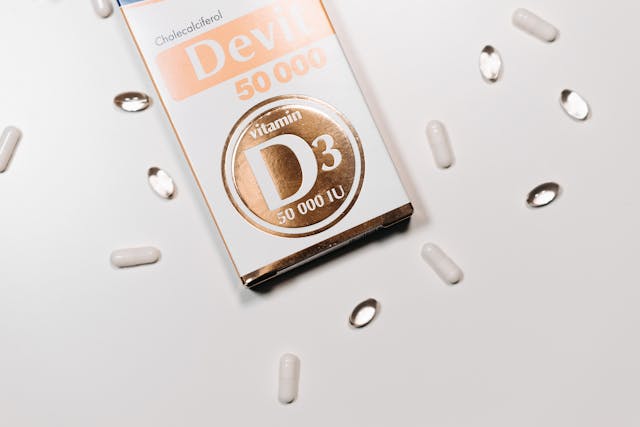It’s no secret that vitamins are essential for our overall health and well-being. Among the many vitamins that our body needs, vitamin D2 and D3 play a crucial role in keeping us healthy. These two forms of vitamin D are necessary for maintaining strong bones, regulating blood pressure, and boosting immunity. But did you know that there are many other amazing benefits of including them in your diet? Let’s explore them in detail.
1. Stronger Bones: Vitamin D2 and D3 help in the absorption of calcium, which is crucial for maintaining strong bones. This, in turn, prevents the risk of osteoporosis.
2. Boosts Immunity: These vitamins play an essential role in activating our immune system, making our body more efficient in fighting off infections and diseases.
3. Reduces Inflammation: Vitamin D2 and D3 have anti-inflammatory properties, which help in reducing chronic inflammation in the body, thus preventing diseases like rheumatoid arthritis.
4. Improves Heart Health: Studies have shown that vitamin D can help in lowering blood pressure, reducing the risk of heart diseases.
5. Enhances Mood: These vitamins are also known to improve mood and alleviate symptoms of depression and anxiety.
6. Supports healthy pregnancy: Vitamin D plays a crucial role in the development of the baby’s bones and teeth during pregnancy.
7. Reduces the risk of Type 2 Diabetes: Studies have shown that including vitamin D in your diet can help in preventing and managing type 2 diabetes.
8. Protects against Cancer: Some research suggests that vitamin D may have a role in preventing certain types of cancers, including breast, colon, and prostate cancer.
9. Promotes Hair Growth: Vitamin D is known to stimulate hair follicles, promoting hair growth and preventing hair loss.
10. Improves Dental Health: Adequate levels of vitamin D can help prevent tooth decay and gum diseases.
These are just a few of the many benefits of including vitamin D2 and D3 in your diet. Make sure to get enough sunlight exposure and include food sources such as fatty fish, egg yolks, and fortified dairy products in your diet to meet your daily vitamin D requirements. Consult a physician or a registered dietitian to determine if you need to take vitamin D supplements to maintain optimal levels. So, soak up that sunlight and give your body the dose of vitamin D it needs!


